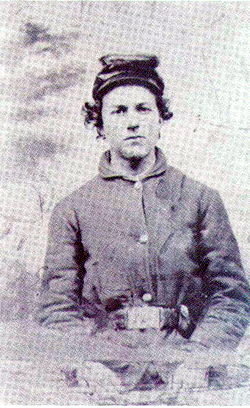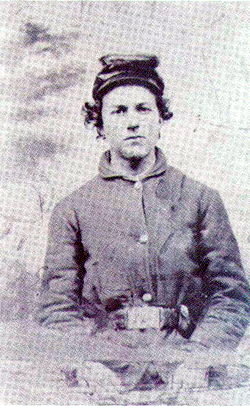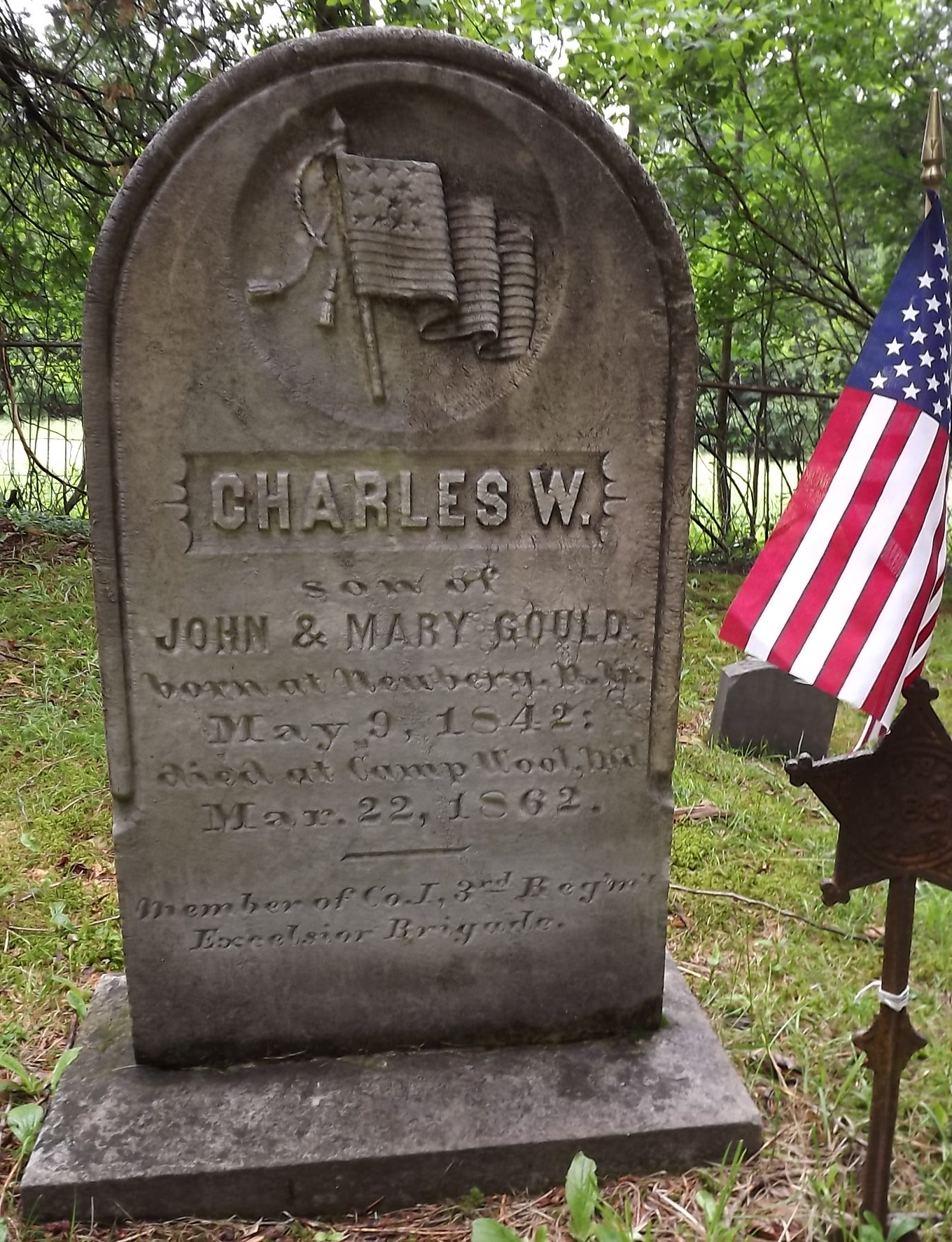Scarely two weeks after his last letter to Hannah, Gould succumbed to typhoid. In a letter to Hannah, Lt. John Sanford assures her that Gould remained a faithful soldier and steadfast Christian to the end.
Lower Potomac, Camp Wool, Maryland
February 26, 1862-Wednesday
Mrs. Thomas
Dear Madam,
Although an entire stranger, I trust you will pardon the liberty that I take of addressing you upon this occasion. I would that the circumstances that calls me at this time to an unwelcome task, could have been otherwise ordered by Him who rules the world holds all things in the hollow of His hand.
Your brother Charles was taken sick about two weeks since, which proved fatal. He died on Saturday last and was buried on Monday following the honors of War. His disease was typhoid Fever.
While it revolves upon me to convey this sad intelligence, it is with great cheerfulness and truth that I can add, that while you have lost a kind brother, we have lost a dutiful and faithful soldier. Always ready and willing to discharge his duties his duties to the best of his abilities, without a murmur. So much so that it endeared him to his officers.
When we first entered the the service, your brother was attached to my tent until he hurt his foot. During [that] time, by his kind and genial disposition, his affable and pleasing manners, I became much attached to him.
While the life of a soldier is not calculated to improve his morals, I can with pleasure, say that the vices and immoralities of Camp had no influence upon Charles. He has padded through them. Always maintaining his rectitude of principles that were the basis of his actions, and seem to have been laid on a sure foundation.
While I would thus console with you in your affliction in this your hour of trouble, I can only urge you to look for consolation from Him who has promised to be a Father to the Fatherless. Who alone is able to heal the wounds of the afflicted and distressed and sustain us in all our trials by His grace. and while we mourn the departed I trust our loss is His eternal gain.
With kind considerations and well wishes I am yours respectfully.
J.P. Sandford, 1st Lieutenant
Company I, 3rd Regiment
Excelsior Brigade
Scarely two weeks after his last letter to Hannah, Gould succumbed to typhoid. In a letter to Hannah, Lt. John Sanford assures her that Gould remained a faithful soldier and steadfast Christian to the end.
Lower Potomac, Camp Wool, Maryland
February 26, 1862-Wednesday
Mrs. Thomas
Dear Madam,
Although an entire stranger, I trust you will pardon the liberty that I take of addressing you upon this occasion. I would that the circumstances that calls me at this time to an unwelcome task, could have been otherwise ordered by Him who rules the world holds all things in the hollow of His hand.
Your brother Charles was taken sick about two weeks since, which proved fatal. He died on Saturday last and was buried on Monday following the honors of War. His disease was typhoid Fever.
While it revolves upon me to convey this sad intelligence, it is with great cheerfulness and truth that I can add, that while you have lost a kind brother, we have lost a dutiful and faithful soldier. Always ready and willing to discharge his duties his duties to the best of his abilities, without a murmur. So much so that it endeared him to his officers.
When we first entered the the service, your brother was attached to my tent until he hurt his foot. During [that] time, by his kind and genial disposition, his affable and pleasing manners, I became much attached to him.
While the life of a soldier is not calculated to improve his morals, I can with pleasure, say that the vices and immoralities of Camp had no influence upon Charles. He has padded through them. Always maintaining his rectitude of principles that were the basis of his actions, and seem to have been laid on a sure foundation.
While I would thus console with you in your affliction in this your hour of trouble, I can only urge you to look for consolation from Him who has promised to be a Father to the Fatherless. Who alone is able to heal the wounds of the afflicted and distressed and sustain us in all our trials by His grace. and while we mourn the departed I trust our loss is His eternal gain.
With kind considerations and well wishes I am yours respectfully.
J.P. Sandford, 1st Lieutenant
Company I, 3rd Regiment
Excelsior Brigade













